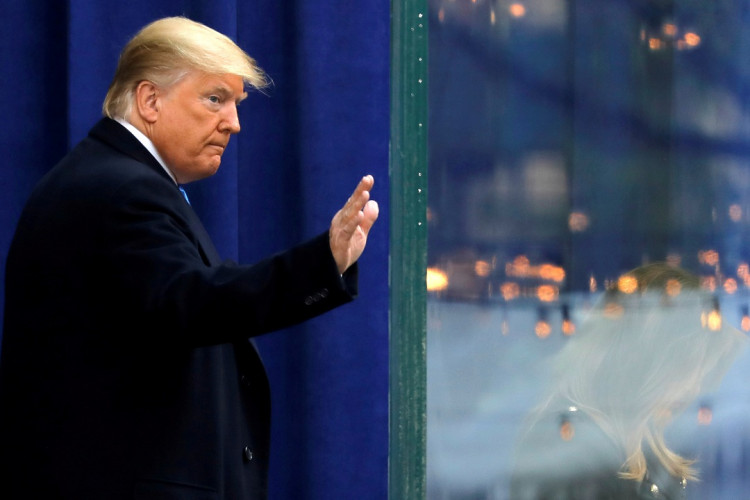President Donald Trump ignited speculations about the state of his physical health with an unscheduled doctor's visit over the weekend and this might be to confirm if he's having a series of untreated "small strokes" or "ministrokes."
This clinical assumption was made by Dr. David Scheiner MD, who was former President Barack Obama's physician for 19 years before Obama was elected president in 2008.
Trump visited the Walter Reed National Military Medical Center in Bethesda, Maryland on Saturday. This visit was not mentioned in Trump's weekly schedule, leading to rumors of Trump's ill health.
The White House, however, insists Trump's visit to Walter Reed was "routine" and part of Trump's annual medical check-up. Trump's doctor, Sean Conley MD, said despite some of the speculations, "the president has not had any chest pain, nor was he evaluated or treated for any urgent or acute issues. Specifically, he did not undergo any specialized cardiac or neurologic evaluations."
One of Trump's other doctors, however, said Trump's visit to Walter Reed was an "interim checkup," a term doctors said implies a separate visit not part of an annual physical. Hence, it was an emergency visit for an emergency purpose.
Presidents and vice presidents are routinely treated at Walter Reed's Medical Evaluation and Treatment Unit (METU) at the METU Suite, which is a secure and autonomous ward within the complex.
Dr. Conley's specific reference to heart issues triggered speculation something else is wrong with Trump. Dr. Scheiner hazards he might have an answer.
He believes Trump might be afflicted by an untreated "neurological issue." Trump's frequent "inability to find words" might be the result of "small strokes," said Dr. Scheiner during an interview with CNN.
A small stroke also called a "transient ischemic attack" (TIA), occurs when part of the brain experiences a temporary lack of blood flow. This generates stroke-like symptoms that resolve within 24 hours. Unlike a full-blown stroke, a ministroke doesn't cause permanent disabilities.
"The worry that I have is maybe he's having small strokes," according to Dr. Scheiner. "We've had that once before in the White House when Woodrow Wilson was president."
Dr. Scheiner also pointed out Trump's "inability to find words is peculiar and has not been explained, and I think one has to think of it as a possible neurological issue."
Taken together, these assumptions might be a good explanation as any for Trump's unscheduled visit to Walter Reed.
"If he had an MRI of his head over there, I would be very pleased because I think he needs it," said Dr. Scheiner of Trump's visit to Walter Reed.
As for Trump's often rambling and occasionally incoherent speech, Dr. Scheiner said these "aren't slips of the tongue, these are words he can't find and this is happening over and over again. Comedians joke about it, but it's not a joking matter. I think there is a neurological issue that is not being addressed."
Dr. Jonathan Reiner, the longtime cardiologist of former vice president Dick Cheney, said he remains "very skeptical" of the White House's explanation, especially since the White House didn't disclose what exam Trump underwent beyond having blood drawn.
"The President has a physician with him every day and access to 24/7/360 care," said Reiner, who was in contact with the White House about Trump's visit to Walter Reed. "I have no doubt he was taken to Walter Reed to do something specific and separate from 'a quick exam and some bloodwork. All that can be done at the White House."






